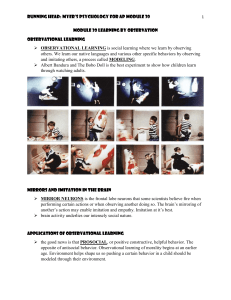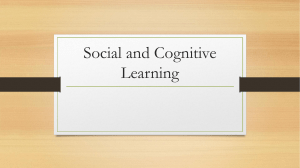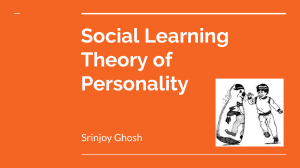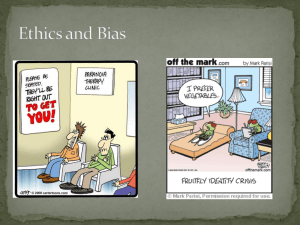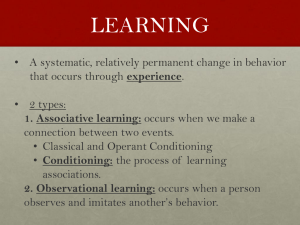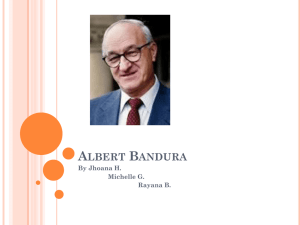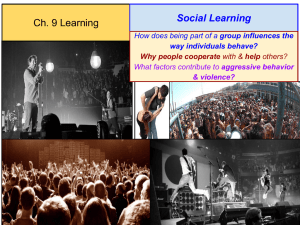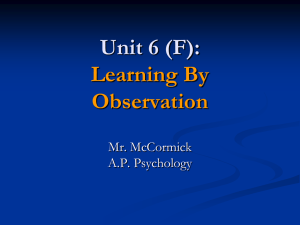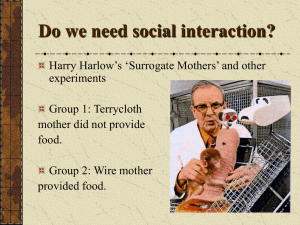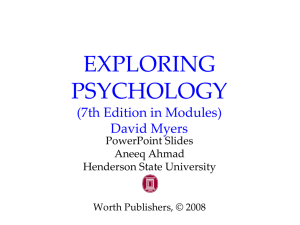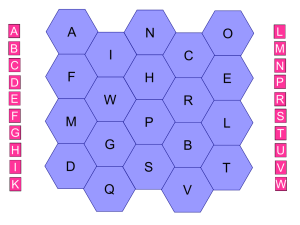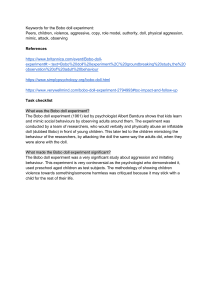Observational Learning: Bandura & Bobo Doll Study
advertisement
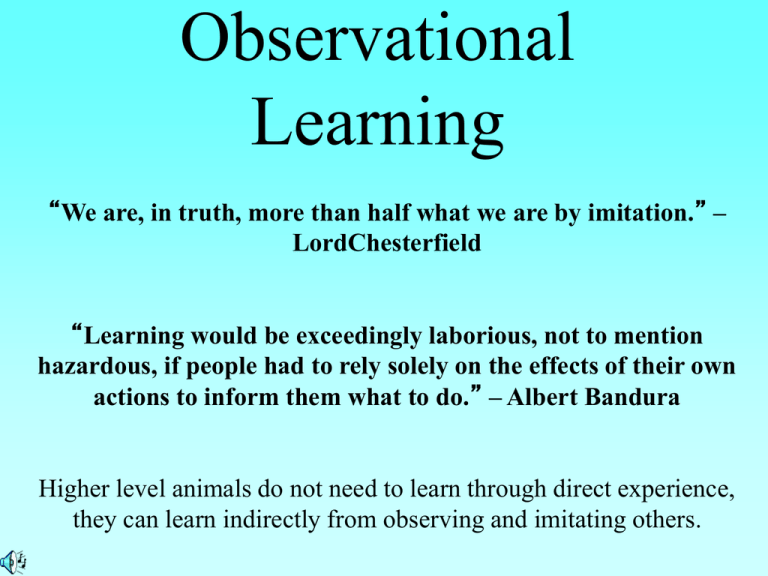
Observational Learning “We are, in truth, more than half what we are by imitation.” – LordChesterfield “Learning would be exceedingly laborious, not to mention hazardous, if people had to rely solely on the effects of their own actions to inform them what to do.” – Albert Bandura Higher level animals do not need to learn through direct experience, they can learn indirectly from observing and imitating others. Observation Learning • • • • • Observation Modeling Memes Imitation Albert Bandura and the Bobo doll study Observational Learning • Learning by observing and watching others (the model) • The Model - the person whose behavior the subject watches and imitates • Modeling - The process of observing and imitating a specific behavior • Memes - ideas, fashions and habits (cultural elements) passed on by imitation. Example: Catch-phrases, ceremonies, foods, traditions, vices, and fads all spread by copying one another. Albert Bandura (1925• American psychologist who has done major studies in observational learning • Studies the consequences a model has on subjects • Bobo Doll experiments ) Bobo Doll Experiments • Children watched an adult model show aggressive behavior toward a Bobo doll • Three experimental conditions: – The model was praised. – The model was punished. – The model received no consequences for the aggressive behavior. Vicarious Learning • Learning by seeing the consequence of another’s behavior • Bandura said that reinforcement is not essential for learning to occur but the expectation of reinforcement affects the performance of what has been learned. Bobo Doll Experiment Bandura’s Bobo Dolls BOBO doll experient Modeling Requirements • Bandura said 4 cognitive processes are used in observational learning • Must pay attention to the other person’s behavior. • Must remember the other person’s behavior. • Must transform the memory into actions that you are capable of reproducing. • Must have some motivation for you to imitate behavior. Biological Findings •Mirror neurons in the frontal lobe by the motor cortex fire when an animal observes another performing a task and when the animal actually performs the task. Observational Learning in Everyday Life Antisocial/Prosocial Behavior • Antisocial behavior - negative, destructive, abusive, unhelpful behavior • Prosocial behavior – positive, constructive, helpful behavior • Both types of behavior can be modeled effectively. • How might TV programs effect the way we behave? Famous last words??? Do what I say, not what I do— This will teach you to hit your brother— Why do you do that, you know you get in trouble for it—
